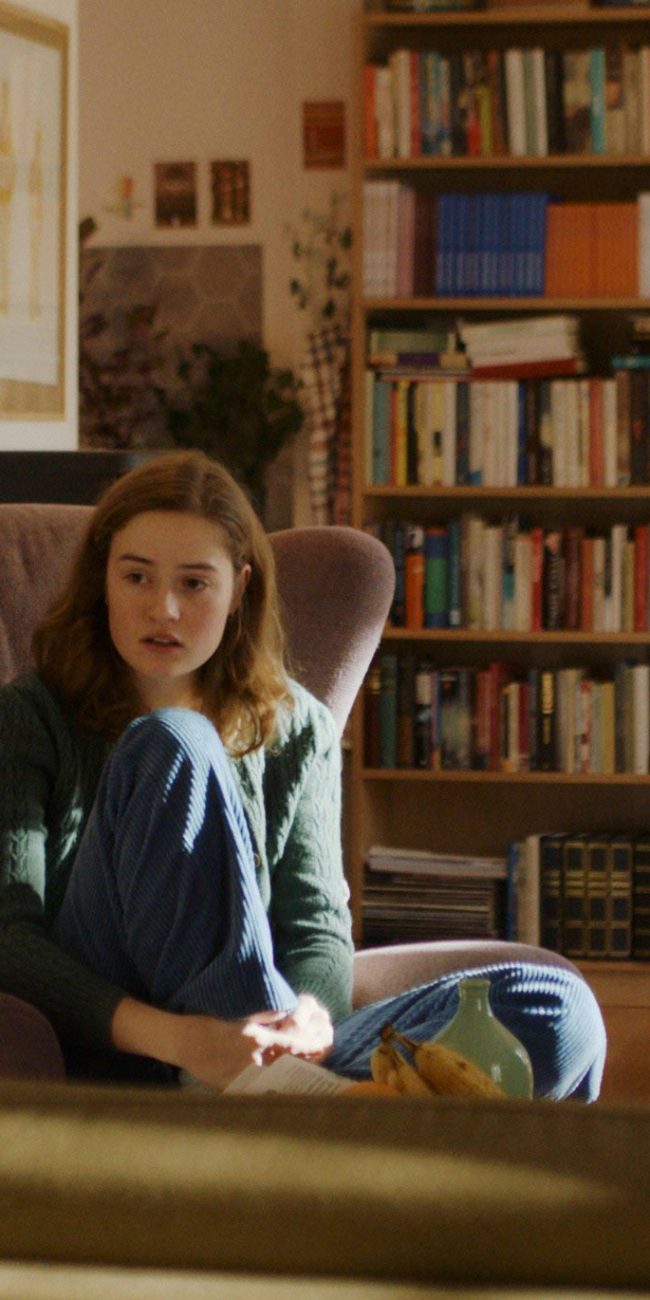DOK LEIPZIG 2020: NAKED TRUTHS – INTIMACY IN DOCUMENTARY FILM

If there’s one panel that really catalyzed my mind this virtual festival year it was DOK Leipzig’s “Naked Truths – Intimacy in Documentary Film” discussion. Expertly led by moderators Djamila Grandits (who seemed to be posing questions straight from my head) and Carolin Weidner, both members of the fest’s selections committee, the participants ranged from sex-on-film veterans to those who defined intimacy in completely clothed terms. There was longtime producer and Berlinale programmer Jürgen Brüning, founder of Pornfilmfestival Berlin, and his co-organizer and curator at the fest, Paulita Pappel, who is also the cofounder of Lustery. And Pia Hellenthal, director of 2019’s exquisite Searching Eva (which Brüning had selected to premiere at last year’s Berlinale). And rounding out the lineup was Julia Palmieri Mattison, whose short Play Me, I’m Yours was playing DOK Leipzig.
One of the very first stereotypes to be upended was the notion of frivolity when it comes to portraying sex onscreen. Brüning brought up the fact that he watches hundreds of documentaries each year for the Berlinale – tackling everything from Syrian war crimes to ecological disasters – and they aren’t necessarily any harder to shoot than was Searching Eva. Hellenthal, he pointed out, had to carefully interact and negotiate with her nomadic, sex worker protagonist throughout production. She was far from just a fly on the wall. He also noted that there are a number of filmmakers right now exploring this delicate space. Indeed, he was seeing an increasing number of explicit sex scenes in nonfiction work – as younger filmmakers seem to be redefining what should and can be shown. Within narrative films, sex used to just be “all under the sheets,” but then slowly got more explicit. Documentaries appear to be following fiction’s lead.
Except perhaps when it comes to critical response. While Gaspar Noé gets feted at Cannes, documentarians choosing to depict explicit sex often provoke only ire. Which Pappel saw as reflecting a larger problem in society. She didn’t mind when critics discussed the beauty, but she did take issue with how sex scenes are usually written about. She wanted reviewers to focus on the scenes themselves – and not the novelty of the sex. Which prompted Brüning to mention that he prefers films be viewed as an organic whole. He also noted that the same myopia occurs when critics write about transgender films – homing in on the transgender aspect while neglecting the relationships being portrayed onscreen. (As a producer for Bruce LaBruce, he’s also thrilled when folks relate to the humanity of the underground director’s zombies, even when those zombies are having sex.)
After Mattison, who hails from Belgium, stressed the need to separate nudity from sexuality – as they aren’t always one and the same – Brüning proffered seeing sexuality as a whole as well. The idea of production companies nixing “frontal nudity” cuts the body into pieces. This is the wrong approach. The arbitrary nature of depicting nakedness but banning penetration – why divide into levels of onscreen acceptance in the first place? Which made Hellenthal recall that in her film Adam (formerly Eva) confronts another character about massage therapy versus sex work. Adam wondered how “the pussy has become this holy object” – why was it any different than the arm? Physical labor is physical labor, regardless of the tool. (To which I might add that this is a very genderqueer POV. Many of us nonbinary folks have never felt that strong of an attachment to our physical forms – so the whole notion of putting random body parts on a pedestal is indeed a major head-scratcher.)

A still from Julia Palmieri Mattison’s short PLAY ME, I’M YOURS
The conversation then turned to the concept of intimate versus public as a social construct. What is intimacy anyway? Hellenthal wanted to know. Who decides this? To which Brüning replied that a character simply allowing a director into their life is an act of intimacy. When Hellenthal then ventured that doing this Zoom from the toilet would be too intimate, the Pornfilmfestival Berlin founder brought up the fact that Thunska Pansittivorakul, the director of Avalon, which was screening the fest and which Brüning had produced, had declined to participate in today’s talk. The Thai filmmaker was very much at ease shooting sex but was uncomfortable speaking on a panel. It was just too intimate for him. (He also reminded us that Western values are not universal.)
Grandits asserted that “intimacy” is an overused word when it comes to discussing documentaries. Mattison’s production process was intimate – as she only worked with friends – whereas Pansittivorakul had portrayed intimacy much more between the lines than even through the sex itself. What does one want to create with intimacy or explicitness? Brüning then noted that “authenticity” in porn was something often debated. But what does that mean? He’d witnessed this same undefinability with nonfiction film in general. Lighting a cigarette, he pointed out that he was expressing an intimacy. Grandits agreed, adding that the Zoom format itself is one of intimacy.
Turning to an audience question via chat box about intimacy coordinators, Weidner then asked whether these sexperts would be useful during documentary productions. Brüning was doubtful – as doc – makers must navigate boundaries ahead of time with their subjects anyhow. (And besides, there’s no money to hire them!) He noted that consent in porn had always been at the top of the agenda – thus intimacy coordinators had never been needed in that realm either. The fiction film industry could learn a lot from porn, he added.
Another Zoom audience member wondered whether the showing of eroticism might somehow make a film less compelling. After all, taking away the taboo of sex also de-eroticizes the act. Pappel expressed little concern for this unintended consequence, as she firmly believed that the mysticism around sex is usually connected to violence. While she respected all directorial choices, she was of the view that mysticism is too often just a euphemism for rape culture.
Grandits (the only Black woman on my screen) then steered the conversation to reclaiming diversity through intimacy. In terms of representing different people and types of bodies – did explicit filmmaking have untapped radical potential? Pappel responded that anytime you challenge people’s ideas and preconceptions there is radical promise. Which is why documentaries can change society. Brüning estimated that half of all the films that play Berlinale don’t achieve this activist potential (and then said that he’s probably not supposed to say that). Pappel was quick to add that intimacy has also changed quite a bit with the advent of technology. The normality of nude pics – even posting shots of one’s breakfast on social media – have upended society in ways we barely recognize. Intimacy itself has changed. And we’d all do better to embrace that metamorphosis onscreen.
Read Lauren’s companion piece to this feature here.
– Lauren Wissot











